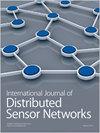基于任务管理和预测优化的通用复杂问题解决架构的设计
IF 2.5
4区 计算机科学
Q3 COMPUTER SCIENCE, INFORMATION SYSTEMS
International Journal of Distributed Sensor Networks
Pub Date : 2022-06-01
DOI:10.1177/15501329221107868
引用次数: 3
摘要
许多现实生活中的问题都有不同的矛盾目标,没有简单的解决方案。因此,我们会根据场景进行分析,选择合适的解决方案,这被认为是实现目标的最佳折衷方案。在文献中,它被称为复杂问题解决,是一种自上个世纪以来一直存在的范式,但复杂问题解决所涉及的认知完全依赖于该领域的专家。然而,随着人工智能和物联网等当前技术的发展,基于先前训练的历史数据,在机器的帮助下进行认知过程是相当可能的。我们之前的工作提出了将复杂的问题解决作为智能城市的服务。在本文中,我们扩展了这项工作,并提出了一种通用架构,用于在物联网通用智能空间中使用任务编排和预测优化来解决复杂问题。所提出的框架利用历史数据对给定问题的复杂性进行人工认知。为此,使用了预测优化,它识别问题并根据给定的约束智能地预测解决方案。任务编排架构用于将复杂问题分解为小任务,以便在现实世界中部署到传感器和执行器中。针对不同的负载条件和不同类别的问题对该架构进行了评估,结果表明,所提出的架构可以用于不同的智能空间解决方案。本文章由计算机程序翻译,如有差异,请以英文原文为准。
Design of a general complex problem-solving architecture based on task management and predictive optimization
Many real-life problems have different contradicting goals and no simple solution. Therefore, an analysis is made to select the appropriate solution based on the scenario, which is considered the best compromise toward the achievement of a goal. In literature, it is known as complex problem-solving and is a kind of paradigm that has been around since the last century, but the cognition involved in complex problem-solving has purely relied on experts in the field. However, with the evolution of the current stack of technologies such as artificial intelligence and the Internet of Things, it is quite possible to perform the cognition process with the help of machines based on the previously-trained historical data. Our previous work proposed the complex problem-solving as a service for smart cities. In this article, we extend this work and propose a generic architecture for complex problem-solving using task orchestration and predictive optimization in Internet of Things–enabled generic smart space. The proposed framework makes use of historical data for artificial cognition of the complexity of the given problem. For this, predictive optimization is used, which identifies the problem and intelligently predict the solution based on the given constraints. The task orchestration architecture is used to decompose the complex problem into small tasks for real-world deployment into sensors and actuators. The architecture is evaluated against different load conditions and different categories of problems, and the results suggest that the proposed architecture can be used a commonplace for different smart space solutions.
求助全文
通过发布文献求助,成功后即可免费获取论文全文。
去求助
来源期刊
CiteScore
6.50
自引率
4.30%
发文量
94
审稿时长
3.6 months
期刊介绍:
International Journal of Distributed Sensor Networks (IJDSN) is a JCR ranked, peer-reviewed, open access journal that focuses on applied research and applications of sensor networks. The goal of this journal is to provide a forum for the publication of important research contributions in developing high performance computing solutions to problems arising from the complexities of these sensor network systems. Articles highlight advances in uses of sensor network systems for solving computational tasks in manufacturing, engineering and environmental systems.

 求助内容:
求助内容: 应助结果提醒方式:
应助结果提醒方式:


